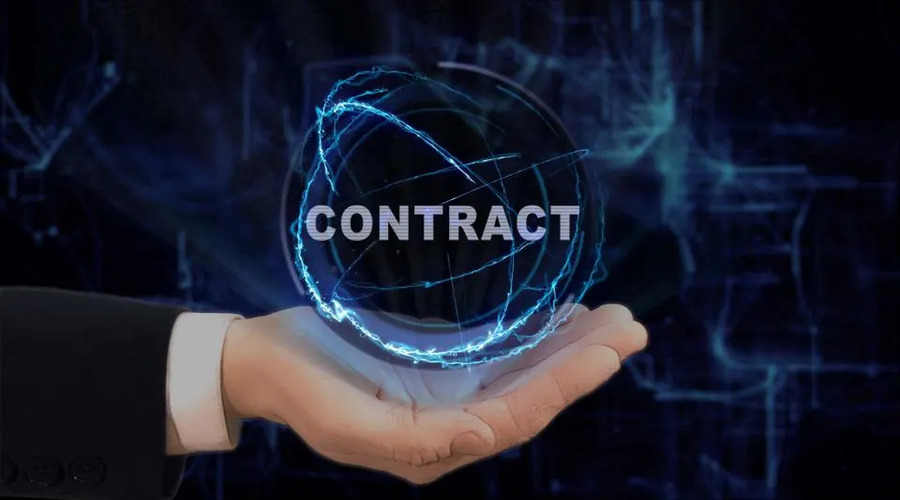
Legal Implications and Regulatory Considerations for Smart Contracts
- summy Morphe
- May 13, 2023
- Blockchain
- Blockchain, Regulations, Smart Contracts
- 0 Comments
Smart contracts have transformed the way we conduct business, but their adoption also raises legal and regulatory considerations. In this article, we delve into the legal implications surrounding smart contracts and explore the regulatory landscape to ensure compliance, mitigate risks, and promote trust in the use of smart contracts.
Introduction to Smart Contracts and Legal Implications
As self-executing agreements built on blockchain technology, smart contracts have the potential to streamline transactions and reduce reliance on intermediaries. However, their adoption introduces legal complexities that need to be addressed. Understanding the legal implications is crucial to ensure that smart contracts are enforceable, protect the rights of the parties involved, and comply with applicable laws and regulations.
Understanding the Legal Framework for Smart Contracts
- Contract Law and Smart Contracts
Smart contracts are subject to the principles of contract law, which include offer and acceptance, consideration, and intention to create legal relations. While traditional contracts are expressed in written or oral form, smart contracts are written in code and executed automatically. However, the fundamental elements of contract formation must still be met for a smart contract to be legally enforceable.
- Digital Signatures and Authentication
Digital signatures play a vital role in ensuring the authenticity and integrity of smart contracts. They serve as an electronic equivalent to handwritten signatures, providing evidence of the parties’ intent to be bound by the terms of the contract. Authentication mechanisms, such as public-key cryptography, are used to verify the identities of the parties involved in the smart contract.
Regulatory Considerations for Smart Contracts
- Securities Regulations
Smart contracts that involve the issuance and trading of digital assets may fall under securities regulations. The sale of tokens through Initial Coin Offerings (ICOs) or Security Token Offerings (STOs) could trigger compliance requirements, such as registration, disclosure, and investor protection obligations. Understanding the applicable securities laws is essential to ensure compliance when utilizing smart contracts for tokenized assets.
- Consumer Protection and Fair Trading Laws
Smart contracts that involve consumer transactions are subject to consumer protection and fair trading laws. These laws aim to protect consumers from unfair practices, ensure transparency, and promote fair competition. Compliance with regulations related to product quality, advertising, pricing, and consumer rights is necessary when using smart contracts in consumer transactions.
- Privacy and Data Protection
Smart contracts may involve the collection, processing, and storage of personal data. Compliance with privacy and data protection laws, such as the General Data Protection Regulation (GDPR), is crucial to ensure the lawful handling of personal information. Smart contract developers and users must implement appropriate security measures and adhere to data protection principles to safeguard individuals’ privacy rights.
Intellectual Property Rights and Smart Contracts
Copyright and Licensing Considerations
Smart contracts can be used to address intellectual property (IP) rights in the digital era. Copyright protection and licensing agreements can be embedded in smart contracts, ensuring that creators’ rights are respected and license terms are enforced. Smart contracts enable automated royalty payments to copyright holders when their works are used or distributed through the smart contract.
Smart Contracts for IP Protection and Royalties
Smart contracts provide an efficient mechanism for managing intellectual property rights, particularly in the digital realm. By embedding licensing terms and conditions into smart contracts, creators can automate the enforcement of their IP rights, ensuring proper attribution, usage permissions, and royalty payments. This reduces the reliance on intermediaries and streamlines the process of protecting and monetizing intellectual property.
Smart Contracts and Cross-Border Transactions

Jurisdictional Challenges
The borderless nature of blockchain technology and smart contracts can pose challenges in determining the applicable jurisdiction for legal disputes. Traditional legal frameworks may not be fully equipped to handle cross-border transactions governed by smart contracts. Determining jurisdiction and applicable laws requires careful consideration of factors such as the location of the parties involved, the governing law clause in the smart contract, and any relevant international treaties or agreements.
International Recognition and Enforcement
Enforcing smart contracts across different jurisdictions can be complex due to varying legal systems and recognition of electronic agreements. International cooperation and harmonization of laws are necessary to facilitate the recognition and enforceability of smart contracts globally. The use of international dispute resolution mechanisms, such as arbitration or mediation, can provide more efficient and enforceable solutions for cross-border smart contract disputes.
Smart Contracts and Dispute Resolution
Alternative Dispute Resolution Mechanisms
Smart contracts can be designed to include dispute resolution mechanisms, such as arbitration or mediation clauses, to address potential conflicts. These alternative dispute resolution methods offer quicker and more cost-effective resolution processes compared to traditional litigation. By incorporating these mechanisms into smart contracts, parties can streamline the resolution of disputes and avoid lengthy court proceedings.
Legal Challenges and Remedies
Despite the potential benefits of smart contracts in dispute resolution, there are legal challenges that need to be overcome. The legal enforceability of dispute resolution clauses in smart contracts, the identification of applicable law, and the recognition and enforcement of arbitration awards can be complex. Parties involved in smart contracts should seek legal advice and consider the specific jurisdictional requirements to ensure the enforceability of dispute resolution mechanisms.
Future Trends and Best Practices in Legal Aspects of Smart Contracts
As the adoption of smart contracts continues to grow, best practices and industry standards are emerging to address legal challenges and promote a trustworthy environment. Engaging legal experts, conducting due diligence, implementing secure coding practices, and adhering to applicable laws and regulations are essential. Collaboration between the legal and blockchain communities is crucial to establish comprehensive frameworks and guidelines that protect the rights of parties and promote the widespread adoption of smart contracts.
Smart Contracts and Compliance
Compliance with applicable laws and regulations is crucial when utilizing smart contracts. Organizations and individuals must ensure that their smart contracts adhere to legal requirements in areas such as financial regulations, anti-money laundering (AML) laws, and know-your-customer (KYC) regulations. Implementing compliance measures, such as verifying participant identities and conducting necessary due diligence, can help mitigate legal and regulatory risks associated with smart contracts.
Smart Contracts and Contract Governance
Contract governance refers to the management and oversight of contractual agreements throughout their lifecycle. Smart contracts provide opportunities for enhanced contract governance by automating key aspects of contract performance and enforcement. Organizations can establish rules and conditions within smart contracts that govern the behavior of the parties involved, ensuring compliance, facilitating contractual performance, and reducing the need for manual intervention.
Auditing and Transparency in Smart Contracts
Ensuring transparency and accountability in smart contracts is essential for building trust among stakeholders. Smart contract audits, conducted by independent third-party firms, help identify potential vulnerabilities, bugs, or security loopholes in the code. Audits also assess compliance with industry standards and best practices, providing an additional layer of assurance to users. Transparent reporting of audit results can enhance confidence in the security and reliability of smart contracts.
Smart Contracts and Insurance
The integration of smart contracts and insurance holds promise for streamlining claims processing and automating insurance policies. Smart contracts can be utilized to automatically trigger claims payments when predefined conditions are met. This eliminates the need for manual claims processing and reduces the potential for errors or delays. Additionally, smart contracts can facilitate the creation of parametric insurance, where payouts are triggered based on predefined events or data, increasing the efficiency and accuracy of insurance processes.
Smart Contracts in Supply Chain Management
Smart contracts have the potential to revolutionize supply chain management by providing transparency, traceability, and automation. By utilizing blockchain technology and smart contracts, organizations can track the movement of goods, verify product authenticity, and streamline payment processes. Smart contracts enable automated execution of contractual terms, such as triggering payments when goods are delivered or ensuring compliance with quality standards. This improves efficiency, reduces disputes, and enhances trust among supply chain participants.
Future Regulatory Developments for Smart Contracts
As the adoption of smart contracts expands, regulators are actively monitoring the technology and considering appropriate legal frameworks. Regulators may develop specific guidelines or regulations addressing smart contract usage, particularly in industries such as finance, healthcare, and real estate. Collaborative efforts between the blockchain industry and regulatory bodies are crucial to ensure that regulations strike a balance between innovation and consumer protection, fostering the responsible growth of smart contract applications.
Conclusion
Smart contracts offer numerous benefits in terms of efficiency, automation, and transparency. However, understanding the legal implications and regulatory considerations is crucial to ensure compliance, mitigate risks, and foster trust in the use of smart contracts. By navigating the legal framework, addressing regulatory requirements, and incorporating best practices, organizations and individuals can leverage the full potential of smart contracts while safeguarding their interests and ensuring the enforceability of agreements in the digital age.
In supply chain management, smart contracts can automate and streamline processes, ensuring transparency, traceability, and efficient payment mechanisms. In healthcare, smart contracts can enhance data privacy, securely manage medical records, and automate insurance claims processing. In the real estate sector, smart contracts can facilitate transparent and efficient property transactions, automating tasks such as title transfers and escrow services. The versatility of smart contracts extends to various sectors, offering opportunities for increased efficiency, reduced costs, and improved trust. As the technology continues to evolve, further innovations and applications of smart contracts in different industries are expected to emerge.


